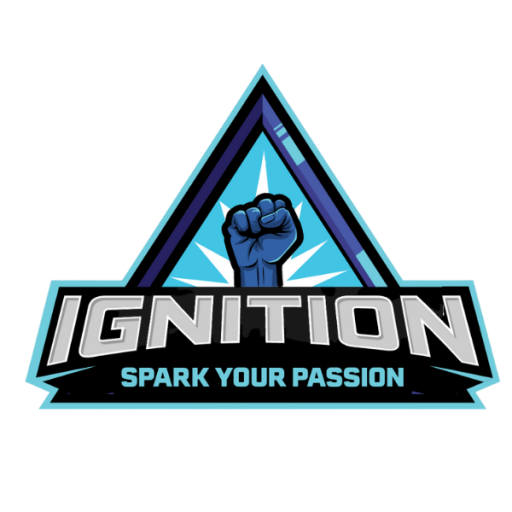As a parent of a neurodivergent teenager, the journey through high school and beyond can bring excitement, apprehension and various challenges. As your teenager approaches graduation, it’s natural that you’ll start wondering how to best support them through their transition to adulthood. Your guidance and support will play a pivotal role in helping your child access the support and opportunities that allow them to live a fulfilling and more independent life beyond high school. This post dives into helpful tips and real-world insights, crafted especially for parents of autistic teenagers during this incredibly important phase of your child’s journey.
Understanding Your Teenager's Strengths and Interests
As parents, we often believe we know our children better than they know themselves. But, in reality, what we think we know, isn’t always the complete picture.
The first step in preparing your neurodivergent teenager for life beyond high school is better to understand their unique strengths, interests and talents. To do this, you’ll need to take the time to have open conversations with your child about their aspirations, hobbies and passions.

Within the neurodiverse spectrum, Autism Spectrum Disorder (ASD) presents differently in everyone, but it isn’t uncommon for a diagnosed individual to have difficulty in their verbal or non-verbal communication skills. That’s why one conversation won’t be enough for most parents, so we encourage you to start talking with your child months before graduation.
Simply Spectrum provides valuable tips that may help you during these conversations, like:
- Making an effort to initiate the conversation
- Starting the conversation by talking to them about something they like or enjoy
- Picking the best time to have a conversation (in the car is sometimes a great place as it’s not confrontational)
- Remaining patient and showing empathy
- Remembering that they’re still kids and they’re still development
- Make a note of what works, what doesn’t work and use this for future conversations.
These discussions will provide valuable insights into potential career paths, areas of study, or vocational pursuits that align with their strengths.
Exploring Post High School Options
Once you clearly understand your teenager’s strengths and interests, it’s time to explore various post-high school options. These options could include pursuing higher education, vocational training, or for some autistic teens with low support needs, even entering the workforce.
It’s essential to consider your conversations with your child to determine the most likely path to success – something they’re good at and enjoy. My Way Employability is a good resource for exploring the strengths of your autistic teenager.
If you have difficulty identifying suitable options, visit the careers advisor at your child’s school. They’ll be able to talk to you and your child and uncover suitable possibilities after high school.
You might find it helpful to break your child’s goals into long-term and short-term ones. Raisingchildren.net.au provide valuable examples of how this can be achieved. For example, a long-term goal might be to gain employment in IT and to accomplish this goal, they might need to:
- Establish a strong support network (mentor, family and friends)
- Undertake further skill development, education or training
- Participate in a Dandelion Program which embraces, supports and expands the skills of neurodiverse people to help them secure long-term, fulfilling IT careers.
- Participate in work experience, volunteer work or an internship
- Attend a club or social group to help them build soft skills like teamwork, problem-solving and social skills
- Write a resume
- Establish a support network
- Sign up for the Disability Employment Service

There’s always a possibility that your autistic child will be faced with a bias or discrimination as they navigate life beyond high school. Many parents fear disclosing their diagnosis to peers, teachers or managers for this very reason. On the other hand, it could also limit your child’s ability to access the support they need, and their behaviours or difficulties might be misinterpreted. Many education programs and support services offer specialised support programs for autistic teens and young adults, which can greatly enhance their chances of success.
We encourage you to create a supportive environment that encourages their growth and development. Foster a sense of autonomy by involving them openly in decision-making and encouraging them to take ownership of their goals and aspirations while providing guidance and assistance when needed.
Developing Essential Life Skills
Preparing your autistic teenager for life beyond high school goes beyond academics. Equipping them with essential life skills is crucial for their independence and self-sufficiency.
Start by teaching practical skills such as budgeting, time management, cooking, and personal hygiene. Then, it makes sense to help them further develop their soft skills like communication, teamwork, friendships and physical health.
Autistics’ Guide to Adulthood is a free resource that you might find helpful. It has been co-designed by autistic adults and professionals and provides ten life-skills modules that can be accessed at your own pace and in a safe and fun online environment. Work through them with your child and remember open conversations and active listening will help you make the most of the content.

We also can’t pass up the opportunity to promote what we do here at Ignition Gamers. Social interactions and effective communication are vital aspects of navigating the adult world. Online gaming and esports benefit autistic teenagers with a passion for gaming. From participating as part of a team, building their social skills, managing their emotional regulation and further developing their cognitive and communication skills – our program starts with gaming but is so much more.
And we’ve seen firsthand how our clients have developed the confidence and skills to achieve their goals. For some, this has been moving on to further education and, for others, gaining meaningful employment.
Developing a range of life skills will empower your teenager to navigate daily challenges and responsibilities confidently. Still, it will also improve their chances of success with study or in the workplace.
Advocating for Support Services and Encouraging Self-Advocacy
Throughout your teenager’s journey, it’s important to advocate for the support services they may need. Research available resources in your community, such as counselling, therapy, or mentorship programs. These services can provide valuable guidance and emotional support as your teenager navigates the challenges of adulthood.
One option worth considering is school leaver employment supports and education, which are National Disability Insurance Scheme (NDIS) supports available to students in their final year and preparing to leave secondary school. These supports help your child to develop the skills and confidence to move from school to employment with individualised support for up to 2 years after finishing school.
NDIS participants with an employment goal as part of their plan may also be able to access funding as part of their Capacity Building Budget. This could be used for an employment assessment, counselling, or other individualised services to assist your autistic child in finding and keeping a job.

We’ve also collated a list of 11 helpful resources for autism employment that you’ll find valuable.
It’s also important to empower your autistic teenager to become their advocate. Teach them to express their needs, preferences, and boundaries effectively. Encourage them to seek support, if necessary, in educational or work settings. Developing self-advocacy skills will enable them to confidently navigate various situations and environments.
Promoting Health and Well-being
A holistic approach to preparing your autistic teenager for life beyond high school includes promoting their physical and mental well-being. For autistic people, self-care is critical due to the sensory sensitivities and differences common among individuals on the autism spectrum.
Please encourage them to participate in activities they enjoy, as well as regular exercise, a balanced diet, and getting sufficient sleep. Stress-management techniques, like deep breathing exercises or mindfulness practices, can be beneficial. After all, a healthy body and mind are essential for navigating the challenges of adulthood.
Life Beyond High School for Autistic Teenagers
As parents of autistic teenagers, you play a pivotal role in guiding your child toward a successful and fulfilling life beyond high school. By understanding their strengths, exploring post-high school options, developing life skills, and fostering a supportive environment, you can empower your child to embrace the challenges and opportunities that lie ahead confidently.
Remember, each journey is unique, and your unwavering support will impact their path to adulthood. Together, you can lay the foundation for a future filled with growth, achievement, and happiness.
If you’d like to discuss any of the information in this post or want to understand how Ignition Gamers can help your neurodiverse teenager or young adult, book a free chat with us. We’d love to hear from you.







